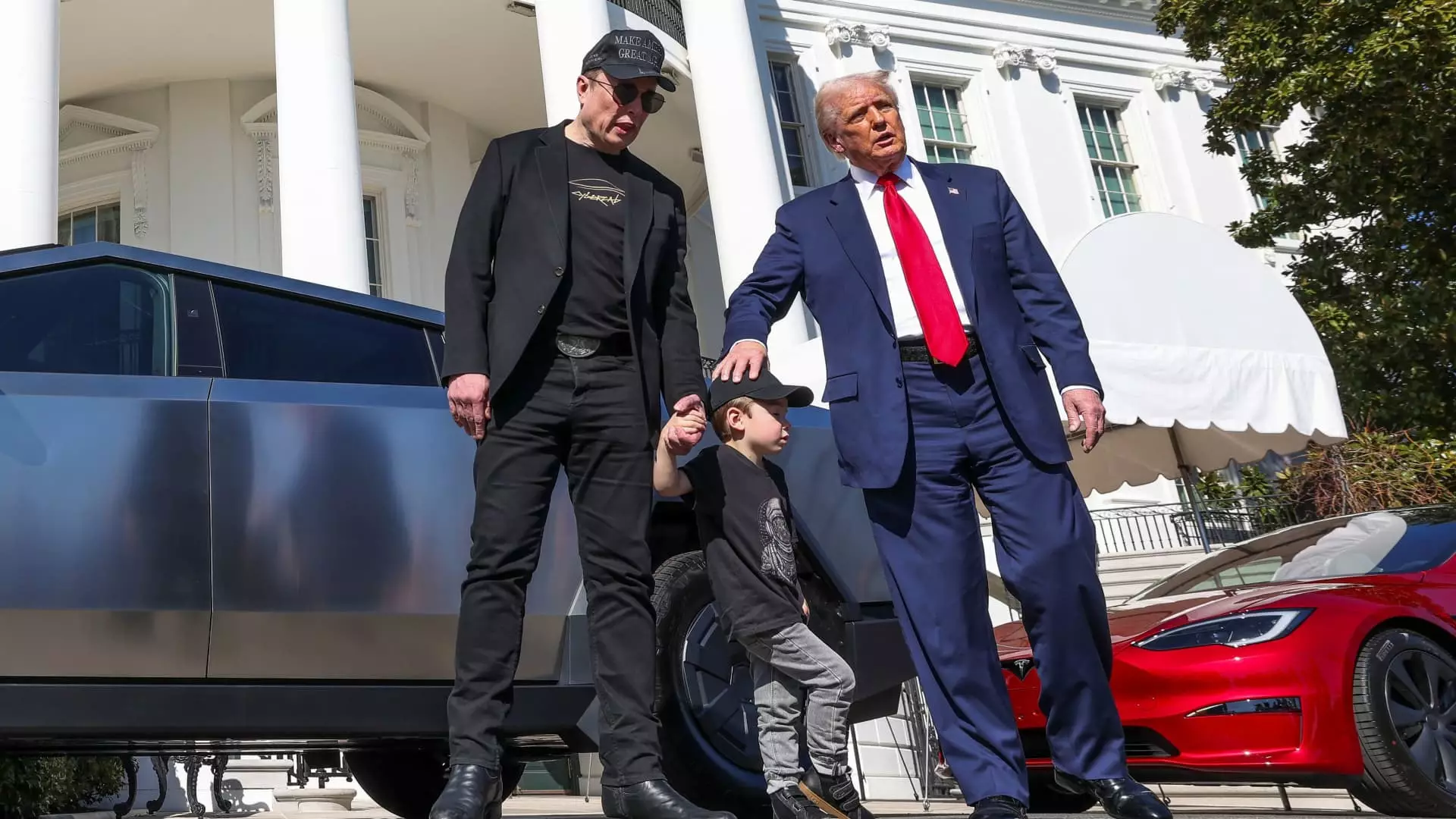When we think of tech titans like Elon Musk, we often conjure images of innovation and disruption. However, recent survey findings from Morgan Stanley present a grim portrait of Musk’s influence on Tesla’s fortunes, particularly as his forays into the political arena intensify. A staggering 85% of respondents—though just a small slice of the larger populace—believe that Musk’s political engagement is not just a nuisance but a clear detriment to the company he built. The implications are immense, revealing a growing disillusionment with a leader who seems more focused on political machinations than steering his company through uncertain waters.
The results of this survey indicate that whether it’s political affiliations or extremist governmental roles, the perception is increasingly negative. 45% of those polled characterized Musk’s political activities as having a “negative” effect on Tesla, while an eye-watering 40% labeled them as “extremely negative.” Herein lies a critical question: how has a visionary entrepreneur become such a contentious figure that his political engagement raises alarm bells among stakeholders?
Musk’s Political Ventures in the Crosshairs
Musk’s entanglement in U.S. government affairs, particularly his recent leadership in the Department of Government Efficiency (DOGE), has not gone unnoticed. His vision for slashing government spending and restructuring its workforce, however audacious, has drawn more than just skepticism; it has generated a firestorm of criticism. The scene of him leading a governmental overhaul appears to paint a portrait of a man who sees himself as a captain of the ship while, paradoxically, it jeopardizes the very fleet he commands—Tesla. Anti-Musk sentiments within some government circles echo in the sentiments of Tesla consumers, many of whom now question their investment in a brand intricately tied to a polarizing figure.
This political gridlock has ramifications that could extend to Tesla’s market share. There is a growing apprehension that his public affiliations, particularly with controversial figures, might dissuade customers who are keen on aligning their values with their purchases. As Tesla ownership becomes a statement of political affiliation rather than a choice driven by merit, we must ask: what does this mean for future sales?
Investor Sentiment and Stock Performance
The discontent among survey participants extends to investor sentiment, which is tilting toward pessimism. Elon Musk’s self-admitted struggles to balance his political endeavors with his business operations don’t inspire much confidence. After announcing his burdensome dual role on live television, Tesla shares fell more than 15%, encapsulating the fallout from his political brand of management. If Musk is not careful, he may find himself at the helm of a company that has suffered irrevocably due to a leadership style that prioritizes political drama over corporate stability.
Interestingly, despite the grim overall picture, approximately 45% of survey respondents still hold a glimmer of optimism, believing that Tesla shares could rebound by the end of the year. This indicates a schism between investor hopes and public opinion, which could lead to volatility in an already unstable market. As Musk traverses his dual role, the question looms large: will he manage to reclaim trust within his company, or will he become a symbol of a larger trend, where personal agendas overtake corporate values?
The Future Under Musk’s Shadow
As the dust settles on this recent survey, the implications for Tesla and its enigmatic CEO remain profound. While Musk has undeniably changed the landscape of electric vehicles and renewable energy, his growing political stature may very well tarnish Tesla’s legacy. For those with an investment in the brand—both financial and emotional—the stakes are high. The looming question is not only whether Tesla can navigate this turbulent public perception but also if Elon Musk can pivot away from a political narrative that risks obliterating the very foundation of his empire.
As Musk navigates the crossroads of technology and politics, the future remains uncertain—not just for him, but for an entire industry that gravitated toward innovation, now facing potential stagnation due to a single man’s controversial choices. In a rapidly evolving marketplace, it may be time for Musk to re-evaluate his priorities; after all, perception is often reality in the world of business.

